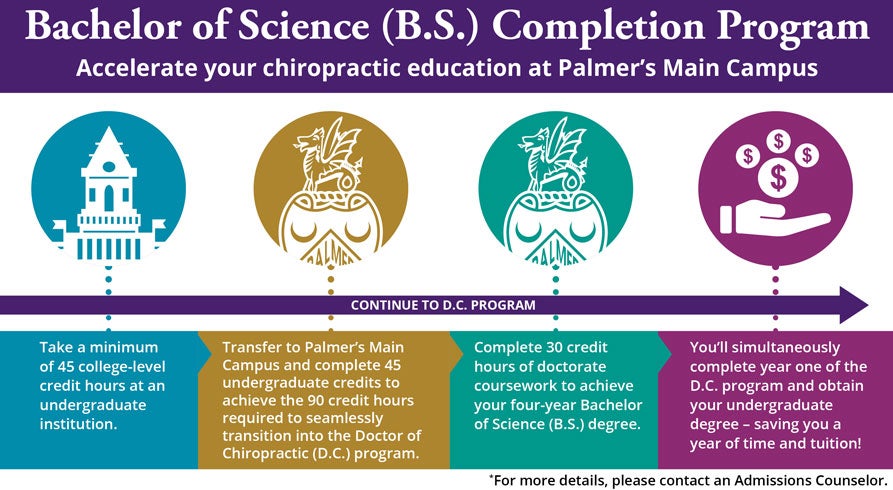
How many credits are needed for a bachelor’s degree? This question is crucial for aspiring college students and those seeking to understand the academic requirements for a four-year degree. The number of credits required for a bachelor’s degree varies depending on the specific program, institution, and even the country of study. This guide will delve into the intricacies of credit requirements, exploring the factors that influence them, and offering insights into how to navigate the process of earning your degree.
From the structure of credit systems to the impact of your chosen major, we’ll examine the key elements that shape the credit load for a bachelor’s degree. We’ll also discuss how to optimize your credit load, transfer credits from previous institutions, and address any credit deficiencies that may arise.
Bachelor’s Degree Requirements

A bachelor’s degree is a post-secondary academic degree awarded by colleges and universities upon completion of a course of study. The specific requirements for obtaining a bachelor’s degree can vary depending on the institution and the field of study. However, most bachelor’s degree programs follow a general credit structure.
Credit System Variations
Different countries and educational institutions use varying credit systems to measure academic progress. Here are some common examples:
- Semester Credit Hours (SCH): This system, prevalent in the United States and Canada, assigns credits based on the number of hours spent in class each week. For instance, a 3-credit course typically involves 3 hours of classroom instruction per week.
- European Credit Transfer and Accumulation System (ECTS): Widely used in Europe, ECTS credits are based on the workload required for a course. One ECTS credit represents approximately 25-30 hours of student workload, encompassing lectures, tutorials, assignments, and exams.
- Credit Units (CU): Employed in some countries, such as Australia and the United Kingdom, credit units represent a standardized measure of academic workload. The specific value of a credit unit can vary between institutions.
Typical Credit Hour Requirements
The number of credit hours required for a bachelor’s degree typically ranges from 120 to 130 semester credit hours in the United States. However, this can vary based on the chosen major and the specific institution. For example, engineering programs may require more credit hours than liberal arts programs.
Factors Influencing Credit Requirements: How Many Credits Are Needed For A Bachelor’s Degree
The number of credits required for a bachelor’s degree can vary significantly, and several factors contribute to this variation. Understanding these factors can help prospective students make informed decisions about their academic path.
Major or Field of Study, How many credits are needed for a bachelor’s degree
The specific major or field of study plays a significant role in determining the number of credits required for a bachelor’s degree. Some majors, like engineering or science, often require more credits due to the intensive coursework and laboratory components. These programs typically involve a higher number of required courses and may include specialized elective courses. Conversely, majors in the humanities or social sciences may require fewer credits, with a greater emphasis on general education courses and elective choices.
Institution
The institution, whether a university or college, also influences credit requirements. Different institutions have their own academic policies and standards, which can impact the total number of credits needed for graduation. Some institutions may require a minimum number of credits in specific subject areas, such as humanities or social sciences, while others may have more flexible requirements. Additionally, institutions may offer different program structures, such as semester-based or quarter-based systems, which can affect the number of credits earned per academic year.
Program Type
The type of program, whether full-time or part-time, can also influence credit requirements. Full-time students typically take a greater course load, earning more credits per semester or quarter. As a result, they may complete their degree in a shorter time frame. Part-time students, on the other hand, may take fewer courses and earn fewer credits per semester, leading to a longer time to graduation. Some institutions may have specific credit requirements for part-time students, ensuring they meet the minimum course load for degree completion.
Course Structure and Credit Allocation

Understanding the structure of a bachelor’s degree program and how credit hours are allocated is crucial for students to plan their academic journey effectively. This section delves into the different types of courses, their corresponding credit hours, and how these credits contribute to the overall degree requirements.
Common Course Types and Credit Hours
The credit hours assigned to each course reflect the expected workload and learning outcomes. Different types of courses, such as lectures, labs, seminars, and independent studies, have varying credit hour allocations.
| Course Type | Credit Hours | Description |
|---|---|---|
| Lecture | 3-4 | Traditional classroom instruction with lectures, discussions, and assignments. |
| Lab | 1-2 | Hands-on practical experience in a laboratory setting. |
| Seminar | 1-3 | Small group discussions focused on specific topics or research projects. |
| Independent Study | 1-3 | Self-directed learning under the guidance of a faculty member. |
Credit Distribution Across Disciplines
Credit hour allocation varies significantly across different academic disciplines.
| Discipline | Course Types | Credit Hour Distribution |
|---|---|---|
| Engineering | Lectures, labs, design projects | More emphasis on science and engineering courses, typically 3-4 credits per course. |
| Humanities | Lectures, seminars, writing-intensive courses | More emphasis on literature, history, philosophy, and arts, typically 3 credits per course. |
| Business | Lectures, case studies, internships | Focus on business principles, management, and finance, typically 3 credits per course. |
Elective Courses and General Education Requirements
Electives and general education courses play a vital role in contributing to the overall credit count.
- Elective Courses: These courses allow students to explore areas of interest outside their major. They provide flexibility and can be chosen based on personal goals and career aspirations.
- General Education Requirements: These courses are designed to broaden students’ knowledge and skills in areas such as communication, critical thinking, and cultural awareness. They ensure a well-rounded education and prepare students for diverse careers.
Closing Notes

Understanding the credit requirements for a bachelor’s degree is essential for planning your academic journey and ensuring a smooth path to graduation. By familiarizing yourself with the factors that influence credit requirements, exploring the different course structures, and utilizing resources for credit transfer and remediation, you can navigate the academic landscape with confidence and achieve your educational goals.
FAQ
What is a credit hour?
A credit hour represents a unit of academic work typically equivalent to one hour of classroom instruction per week for a 15-week semester.
Can I graduate early if I take more credits per semester?
Yes, you can potentially graduate early by taking a heavier course load and completing your degree requirements faster.
What if I need to take extra courses to make up for a credit deficiency?
Many universities offer remediation courses to help students address credit deficiencies and meet graduation requirements.




